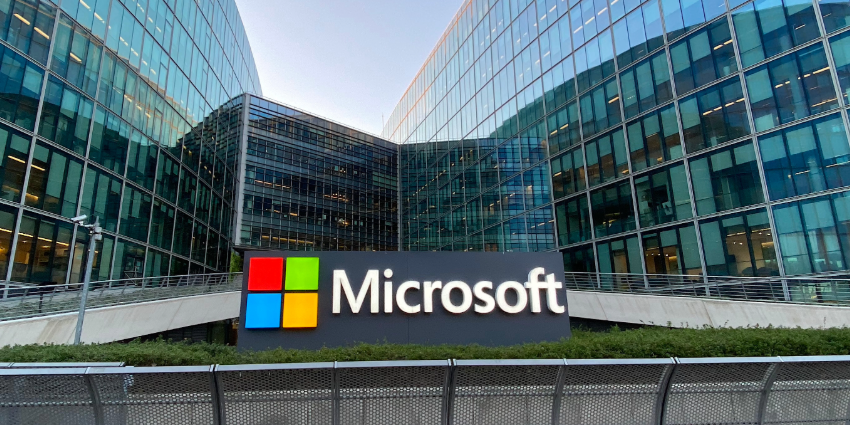Microsoft appears to be reevaluating aspects of its artificial intelligence strategy, and raising general questions about the pace and scale of AI infrastructure expansion.
Recent developments, including reports of the company stepping back from OpenAI’s massive Stargate project and cancelling data centre leases, have industry analysts wondering if a strategic recalibration might be underway.
There is no definitieve reason as to why this is happening, but investment bank TD Cowen recently penned a report that stated:
While we have yet to get the level of color via our channel checks that we would like into why this is occurring, our initial reaction is that this is tied to Microsoft potentially being in an oversupply position.
A Stellar Shift: Backing Out of Stargate
It looks like Microsoft may have backed away from participating in OpenAI’s ambitious $500 billion Stargate project. Initially announced in January 2025, Stargate was positioned as a joint venture between OpenAI, Oracle, and SoftBank aimed at building next-generation AI data centres over a four-year period.
The project, which Trump called a “resounding declaration of confidence in America’s potential,” planned to create 100,000 jobs and establish advanced cooling systems and high-density server configurations optimised for AI workloads.
While Microsoft CEO Satya Nadella previously indicated support for AI infrastructure investment, saying he was “good for my $80 billion” when questioned about funding, this development suggests the company might be reconsidering its involvement in this particular venture.
Data Centre Strategy Adjustments
Beyond the Stargate project, Microsoft has reportedly cancelled multiple data centre leases across the United States, amounting to hundreds of megawatts of capacity. According to TD Cowen analysts, the company has:
- Let over a gigawatt of agreements on larger sites expire
- Walked away from multiple deals involving approximately 100 megawatts each
- Slowed the conversion of Statements of Qualification (SOQs) into final lease agreements
- Abandoned land acquisitions intended for future expansion
These moves have raised questions about whether Microsoft might be reassessing its immediate needs for AI infrastructure, particularly for OpenAI-related projects.
Nadella’s Perspective on AI Value
Microsoft CEO Satya Nadella recently offered a notably grounded assessment of AI’s current economic impact during an appearance on Dwarkesh Patel’s podcast:
Us self-claiming some [artificial general intelligence] milestone, that’s just nonsensical benchmark hacking to me… The real benchmark is: the world growing at 10 percent. Suddenly productivity goes up and the economy is growing at a faster rate. When that happens, we’ll be fine as an industry.
His comments raise the question of whether the industry has been focusing too heavily on technical milestones rather than demonstrable economic value.
Market Factors and Potential Influences
Several factors could potentially influence Microsoft’s approach to AI infrastructure:
- Possible Supply Considerations: TD Cowen analysts Michael Elias, Cooper Belanger, and Gregory Williams noted in their report that Microsoft might be evaluating its supply position regarding AI data centers.
- Technological Developments: More efficient AI models that require less infrastructure could potentially reduce the need for massive data center investments.
- Competitive Landscape: The emergence of models like DeepSeek, a Chinese AI model claiming comparable performance to top U.S. models at a fraction of the cost, may be prompting questions about infrastructure investment strategies.
Microsoft’s Official Position
Despite speculation about potential shifts, Microsoft maintains that it remains committed to infrastructure growth. A company spokesperson stated: “While we may strategically pace or adjust our infrastructure in some areas, we will continue to grow strongly in all regions. Our plans to spend over $80B on infrastructure this FY remains on track as we continue to grow at a record pace to meet customer demand.”
The company is reportedly reallocating some of its international spending back to the U.S., which could suggest evolving priorities rather than an overall reduction in commitment.
Looking Ahead
Microsoft’s strategic decisions come at an interesting moment for the AI industry, which faces questions about balancing ambitious development with practical economic returns. As Nadella himself noted, a key measure of AI’s success will be its ability to drive meaningful economic growth and productivity improvements.
For now, industry observers are watching closely to see whether Microsoft’s apparent adjustments represent a temporary recalibration or the beginning of a more measured approach to AI infrastructure investment across the industry.








